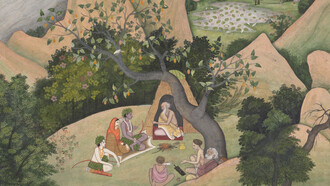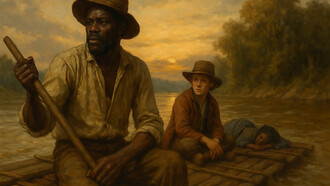Drifting off to sleep if it's even possible, somewhere around five in the morning, whenever the sun rises feels the safest. It could be called degeneracy; it could be called any number of labels. If any of these labels mattered to the youth they are ascribed to, maybe they would have a tangible value. The word ‘prodictivity’ is meaningless; young people are not paid enough money to care about their future, and the notion of productivity is lost in the trickle-up economy where billionaires might as well be reinstating feudalism.
Friends, honor, respect—there are certain things that matter in the depths of what previous generations hoped would matter to us. In Australia, eight people kill themselves every day, with 86% of these people being men. Needless to say, there are 365 days in a year, making this figure 2,920 in each calendar year. The chances of this figure decreasing are slim, only because the blame is consistently on the victim, their mental state, or their own actions or decisions; the blame is never on the political climate of the world or a lack of international diplomacy. Suicidal thoughts can stem from a distrust in government. What is to become of the flock if its shepherd is preoccupied with personal tiffs and petty disputes?
Are we to trust the government's website on issues such as broad statistics relating to society's trust in governing bodies and law enforcement? As a society, we must question the supposedly unquestionable. As a society, we must insist that as good as the quality of life is right now, it is still not good enough. For what becomes of the idealists? They are cast aside and deemed profitless. There is no profit in world peace; there is no economic progression without war, as the Rothschilds or Rockefellers might have us believe. Cryptocurrencies were seen as either revolutionary or a futile gamble to the common man, and to the powers that be, they were seen as a threat to a centuries-old institution. The free market was revealed as anything but free when people were prohibited from buying shares in GameStop stock. Free speech is under threat at the hands of internet moguls like Mark Zuckerberg and Elon Musk; the kind of talk they do or do not agree with is entirely at the discretion of individuals, as Orson Welles’ sick vision of “wrong thinking” plays out in real time.
Robots that stand taller than the common man shoot automatic rifles at Tesla Cybertrucks steered by other robots. Mankind collectively howls at the moon, questioning what the word productive even means in the post-industrial age of information. The middle class has been coerced into influencing other middle-class people to pay for things they cannot afford in order to feel a sense of validation or self-worth. The night grows colder and the news cycle grows shorter. Each day raises more questions than it answers; it is never cynicism, nihilism, or despair if abject reality is the root cause.
Waking on a Monday in January during simultaneous genocides, asking oneself, “What should I buy, when will I die, what are those closest to me feeling right now, and are we anything alike?” Aghast in wonderment, begging for answers to the question, “Am I okay?” In all of this, we begin to realize that there are not enough words that exist in any language to describe the human condition. There are three constants in life and only three constants; taxes are not one of them, because even taxes are just a made-up tool of coercion to keep the poor where they are and offer a loophole to the wealthy. The three constants in life, as we know them, are light, dark, and change.
This much is true, or at least it is true to me. I cannot tell you what is true to you because, in the age of information, you choose what to shout into the digital echo chamber of the internet to reaffirm your preexisting beliefs. You are able to delude or enlighten yourself about anything you choose; the danger is that falsehoods are capable of radicalizing the stray and outcast.
Even leading members of whatever cabal we look to lately have spoken of a reclusive scientist wreaking unknown biological havoc. Have we, as a species, known anything other than chaos? If we could know peace and truly coexist, how long would it last before some isolated freak got bored and chose annihilation instead?
Since man discovered fire, we have learned how to stay warm and how to burn. The paradox of choice is a plague that rages in the hearts and minds of us all forever more.















